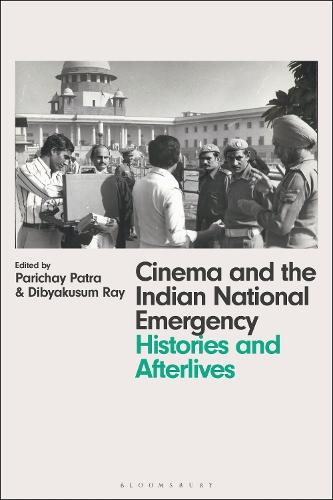
Cinema and the Indian National Emergency: Histories and Afterlives
(Hardback)
Publishing Details
Cinema and the Indian National Emergency: Histories and Afterlives
By (Author) Parichay Patra
Volume editor Dibyakusum Ray
Bloomsbury Publishing PLC
Bloomsbury Academic
24th July 2025
United Kingdom
Classifications
Tertiary Education
Non Fiction
Film history, theory or criticism
791.430954
Physical Properties
Hardback
272
Width 156mm, Height 234mm
Description
The Indian National Emergency of 1975 to 1977, saw the suspension of civil liberties, increasing censorship, and extra-judicial state control. It is recognised as one of the most tumultuous periods in the history of postcolonial India, and its socio-political consequences have been exhaustively studied. Despite this, the profound cinematic implications of this event have remained relatively unexplored. This book examines the strained relationship between the state and the Indian film industry during this 21 month period of political upheaval. Each of the essays, written from a broad range of critical perspectives, consider the various modes of state suppression adopted, from increasing levels of film censorship to police surveillance of film productions and exhibitions. Contributors analyse controversial films such as Aandhi (1975) and Nasbandi (1978), which were banned for the duration of the Emergency, and overtly political films such as Kissa Kursi Ka (1977), the prints of which were permanently confiscated owing to the films criticisms of the state. They also consider the political and aesthetic dilemmas of state-sponsored films such as Ashadh Ka Ek Din (1971), which was made to be explicitly apolitical and came to be known as a key work of New Indian Cinema.
Author Bio
Parichay Patra is Assistant Professor of Humanities and Social Sciences at the Indian Institute of Technology, Jodhpur, India. His research interests include transnational associations of cine-politics and the dictatorial regimes of the long 1960s. Dibyakusum Ray is Lecturer in English, Philosophy and Cultural Studies at the Indian Institute of Technology, Ropar, India. He is author of Postcolonial Indian City-Literature: Policy, Politics and Evolution (2022). He is head of the centrally funded project on the archiving of lost media elements during the Indian National Emergency, 1975-77, in collaboration with Royal Holloway College, UK.
